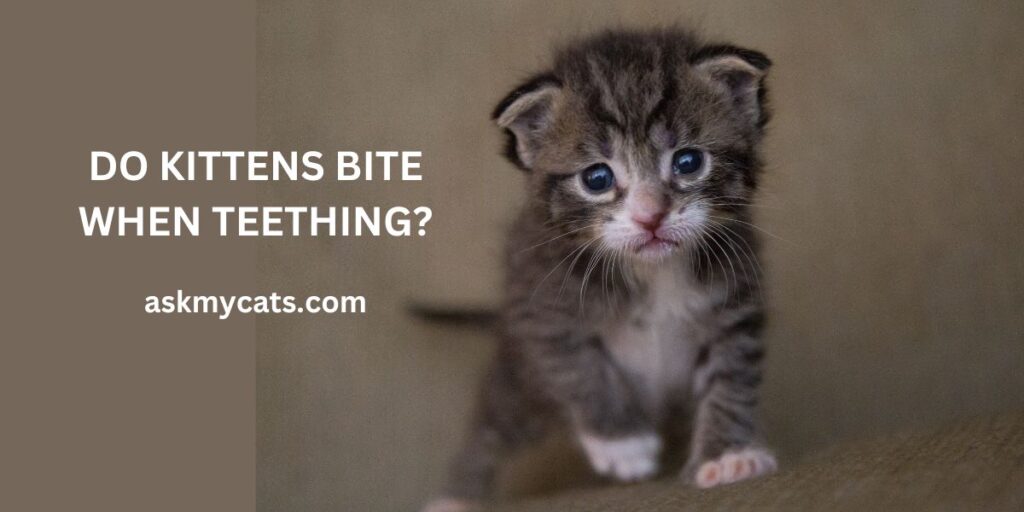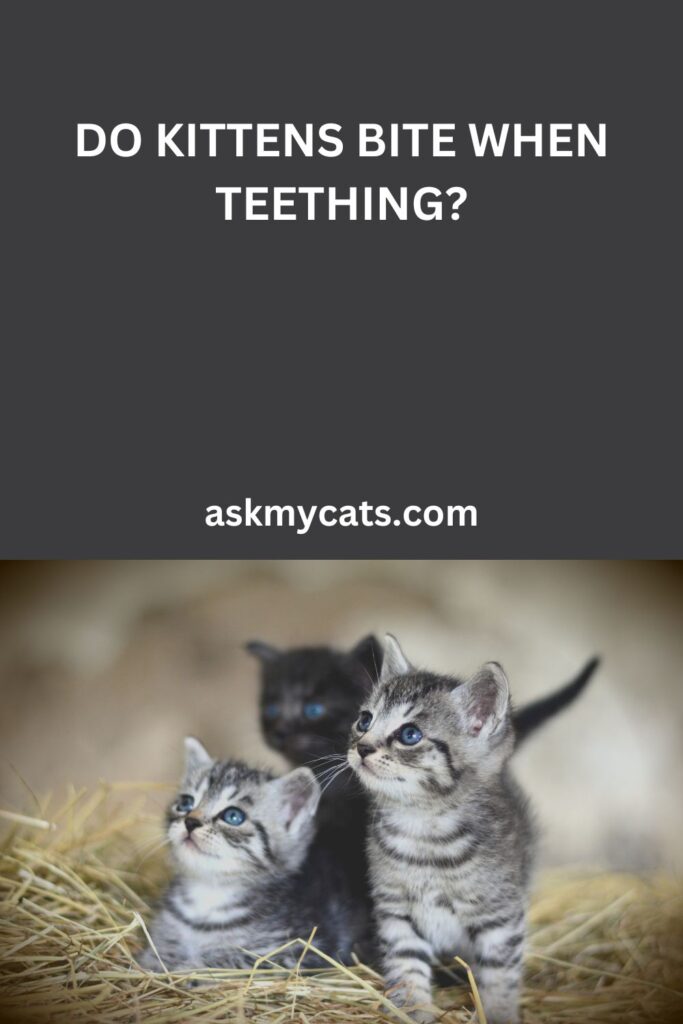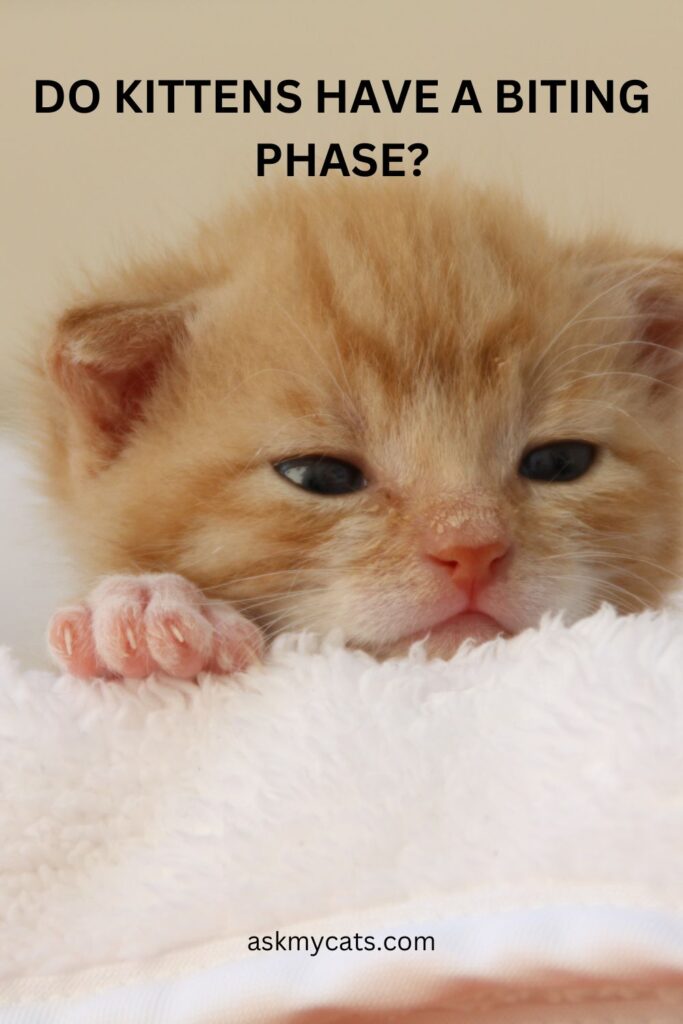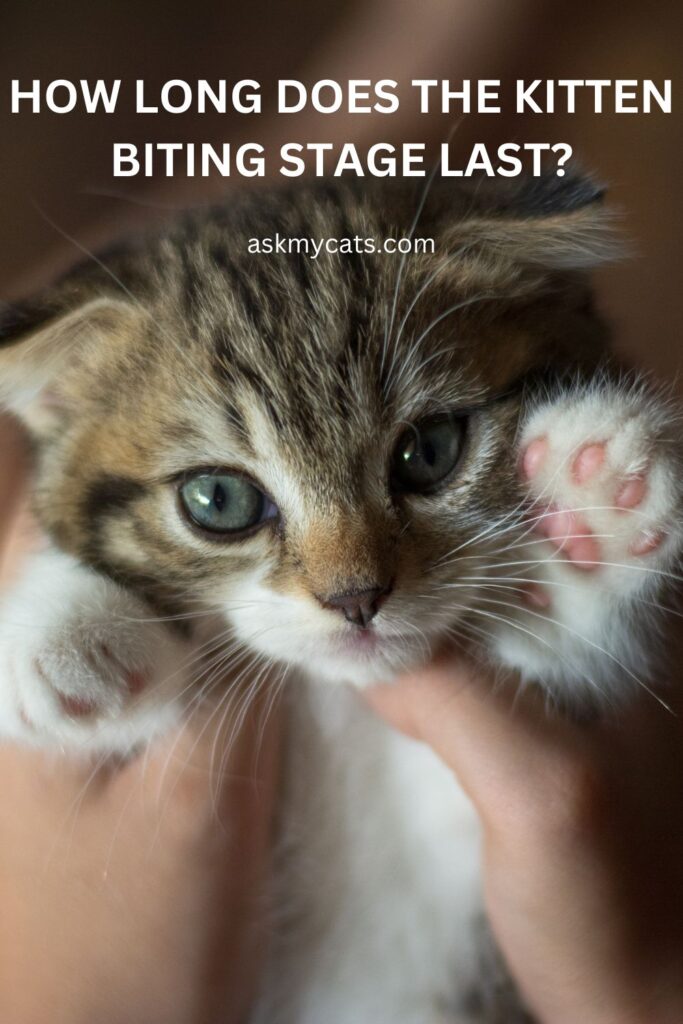Welcoming a playful and adorable kitten into your home is an exciting experience. However, as they go through the teething phase, those tiny teeth can sometimes leave their mark.
In this article, we will explore the world of kittens and their biting habits. We’ll delve into why kittens bite when teething, how long the biting stage lasts, and most importantly, how to curb this behavior and keep your fingers intact.
Key Takeaways
- Kittens may bite when teething as their baby teeth fall out and adult teeth come in.
- Redirecting their chewing behavior to appropriate objects, such as chew toys, is important during this phase.
- Cloth toys that can be chilled, firmer chews, and nylon-based toys are suitable options for teething kittens.
- The duration of the kitten biting stage is around 2-3 months, starting at approximately 12 weeks of age.
- Patience, appropriate chew toys, and consistent reinforcement of positive chewing habits are key during the biting stage.


Give Your Cat the Perfect Day
Get the Free Ebook!
Do Kittens Bite When Teething?

Indeed, kittens may bite when they are teething. As their baby teeth start to fall out and make way for their adult teeth, they may experience discomfort and tenderness in their gums. Biting and chewing become a natural response for them to alleviate the soreness they feel.
Just like human babies who explore the world by putting objects in their mouths, kittens use their teeth to navigate their surroundings.
Teething is a necessary process for kittens, as it allows their adult teeth to grow and ensures their long-term dental health.
However, it’s important to guide them in appropriate chewing behavior during this phase to prevent it from becoming a habit or developing into aggressive tendencies.
When kittens bite while teething, it’s crucial to redirect their chewing behavior to appropriate objects, such as chew toys. Providing a variety of chew toys that are specifically designed for teething kittens can help soothe their gums and provide relief.
Cloth toys that can be chilled in the refrigerator, firmer chews that exercise their jaw muscles, and nylon-based toys are all suitable options.
While it’s essential to acknowledge and understand that biting is a natural response during the teething process, it’s equally important to establish boundaries and teach kittens that biting humans is not acceptable behavior.
By redirecting their attention to toys whenever they bite, using positive reinforcement, and avoiding rough play that encourages biting, you can help them develop appropriate chewing habits.
Must Read: Cat Teething: Understanding the Age Timeline and Signs
Do Kittens Have A Biting Phase?

The biting phase that kittens go through during teething can indeed be seen as an adventure. It’s a time when their natural curiosity leads them to explore the world around them using their teeth.
Initially, it may seem cute when they nibble on your fingers or toes, but it’s crucial to recognize the potential consequences of encouraging this behavior.
When kittens are in their biting phase, it’s important to set boundaries and discourage biting as a form of play or interaction.
While it may be tempting to engage in playful interactions that involve letting them bite your fingers, it’s essential to redirect their attention to appropriate toys and objects.
Encouraging biting can lead to the development of a bad habit, and as they grow older, this behavior can become more aggressive and harder to manage.
Teaching kittens that biting humans is unacceptable behavior is vital for their socialization and future interactions with people.
By discouraging biting during their teething phase, you can help them develop proper boundaries and prevent them from becoming overly aggressive as they mature.
Interesting Read: Tips On How to Help a Teething Kitten
How Long Does the Kitten Biting Stage Last?

The duration of the kitten biting stage, which coincides with their teething process, spans approximately 2-3 months.
It typically begins around 12 weeks or 3 months of age when their baby teeth start to fall out, and it continues until their permanent adult teeth have fully erupted.
During this period, kittens may experience discomfort and soreness in their gums as their adult teeth push through. Consequently, they will engage in a significant amount of chewing and biting to alleviate the discomfort they feel.
It’s important to note that this behavior is entirely normal and expected during the teething process.
As a responsible pet owner, it’s crucial to be patient and understanding during this stage. Provide your kitten with appropriate chew toys, redirect their biting behavior to these toys, and offer them comfort and support as they navigate through this milestone.
Remember that with proper guidance and consistent reinforcement of positive chewing habits, you can help your kitten develop appropriate behaviors and ultimately transition into the next phase of their dental development.
While the kitten-biting stage may test your patience, it’s important to remember that it is a temporary phase.
Common Behaviors during Teething
| Behavior | Description |
|---|---|
| Chewing | Kittens may chew on objects to relieve teething discomfort, such as toys, furniture, or fingers. |
| Biting | Kittens may nip or bite during playtime due to teething sensations. |
| Drooling | Increased saliva production is common during teething and may result in drooling. |
| Irritability | Kittens may become more irritable or restless during the teething process. |
| Decreased appetite | Some kittens may experience a temporary decrease in appetite while teething. |
Interesting Read: The Importance of Teething Toys for Kittens
Frequently Asked Questions
How to stop a teething kitten from biting?
Provide appropriate chew toys, redirect their attention to toys instead of fingers or toes, play with them using interactive toys, use deterrents on objects you don’t want them to chew, and seek professional advice if needed.
Can biting during teething lead to aggressive behavior?
Yes, encouraging biting during teething can develop into a bad habit and potentially lead to aggressive behavior later on. It’s important to discourage biting and redirect their attention to appropriate chewing objects.
Are there specific toys for teething kittens?
Yes, there are toys designed specifically for teething kittens, such as cloth toys that can be chilled, firmer chews to exercise their jaw muscles, and nylon-based toys for teething. These toys can help soothe their gums and provide relief during the teething process.
Final Words
Teething can be a challenging phase for both kittens and their human companions.
By understanding why kittens bite when teething, the duration of the biting stage, and implementing appropriate training techniques, you can help your furry friend develop healthy chewing habits.
Remember, patience, consistency, and positive reinforcement are key to guiding your kitten through this milestone in their development.
With your love and guidance, they’ll grow into well-behaved cats who bring joy to your life without leaving teeth marks along the way.
Check Out: DIY Homemade Kitten Teething Toys
References
- https://www.ainfund.org/kitten-teething-tips
- https://www.greencrossvets.com.au/services/kitten-teething/
- https://www.mountainaireanimalclinic.com/site/blog/2022/06/15/signs-your-kitten-teething
- https://heartandpaw.com/pet-parent-resources/kitten-teething
- https://www.veterinarians.org/kitten-teething-toys/
